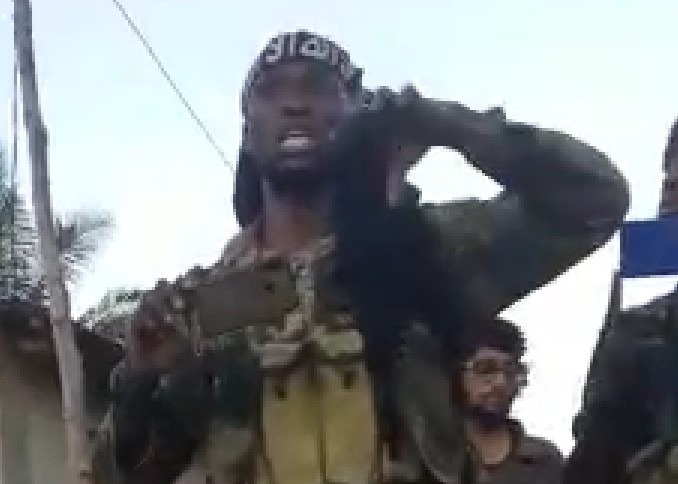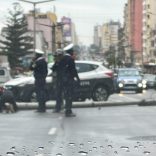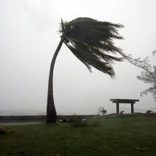Mozambican alleged kidnapper shot dead in South Africa - AIM report
Mozambican and Rwandan forces hunt terrorist leader – AIM

Photo: Twitter * @Jasminechic0
The joint Mozambican and Rwandan forces in the northern province of Cabo Delgado will do all in their power to capture terrorist leader Bonomar Machude Omar, promised the commander of the Mozambican army, Maj-Gen Cristovao Chume, cited by Radio Mozambique on Friday.
The US Secretary of State, Antony Blinken, has named Omar as head of “the Military and External Affairs Departments for ISIS-Mozambique” who “serves as the senior commander and lead coordinator for all attacks conducted by the group in northern Mozambique, as well as the lead facilitator and communications conduit for the group”.
Earlier this month Blinken named Omar and four Malian and Somali terrorist figures as “Specially Designated Global Terrorists”, which means that any assets they may hold “must be blocked and reported to the Department of the Treasury’s Office of Foreign Assets Control (OFAC)”.
Chume said that the Mozambican defence and security forces have captured some of Omar’s close collaborators. “What we know is that he is alive”, he added. “He is in this area of operation, which is the Mocimboa da Praia theatre”.
“He is somewhere around here, and we shall continue our intelligence work”, he said. “He has recently lost some men of great importance who protect him, and we’ve captured some of his assistants”.
“These people are cooperating”, said Chume, “and we are absolutely sure that, if he doesn’t die in combat, he will be captured, as will other leaders of the group”.
Chume told the radio he did not know whether those already captured are Mozambicans or foreigners. “It’s our investigations that will give us the conclusions”, he said.
A second ISIS-Mozambique figure named by Blinken, Abu Yasir Hassan, is a Tanzanian citizen. However, the Tanzanian police claimed that the man of that name in their records had already died.
On Thursday, the governor of Cabo Delgado province, Valige Tauabo, visited Mocimboa da Praia to greet the Mozambican and Rwandan troops who had recaptured the town from ISIS last Sunday, and to make a preliminary assessment of the damage done by the terrorists.
Everywhere Tauabo went he witnessed destruction – Mocimboa da Praia port, the district hospital, the secondary school, the installations of the mobile phone company, TMcel, all had been reduced to ashes or to tangled metal.
After speaking to the military commanders, Tauabo, according to the independent television station STV, reached the conclusion that it would be premature to invite the people displaced from Mocimboa da Praia to return to their homes.
Before the terrorists began their attack, in October 2017, Mocimboa da Praia was a moderately prosperous town, with a population (according to the latest census) of about 63,000. Almost all of them fled from ISIS and are now living in the provincial capital, Pemba, or in other areas regarded as safe, either in Cabo Delgado or in neighbouring provinces.
Justifying the decision not to invite the displaced to return, Tauabo said that, under current circumstances it is impossible to provide medical care, and there are no schools for the children. Furthermore, security is not yet fully guaranteed.
When the military leaders believe that security is guaranteed, sad Tauabo, “the government will send experts to the town to assess the needs, and what options can be taken to guarantee the minimum functioning of public institutions. Only after this question is solved can we think about bringing the population back home”.
The mayor of Mocimboa da Praia, Cheia Momba, accompanied Tauabo, and visited the ruins of the municipal offices. The terrorists had set them on fire and almost nothing remains.
Momba said that the municipal staff all escaped unharmed before ISIS seized control of the town a year ago. They have been given jobs elsewhere in Cabo Delgado until they are able to return to Mocimboa da Praia.
Attempts are now under way to restore communications. A team from the mobile phone company Vodacom was in the town on Thursday, and told STV that the phone network could be operational in the town within a week, and would then be extended to other parts of Mocimboa da Praia district.
However, restoring the supply of electricity will take much longer, since it depends on the sub-station at Awasse, which ISIS destroyed. This sub-station used to guarantee power to all the northern districts of Cabo Delgado.
Also on Tauabo’s delegation was Mahomed Faruk Jamal, one of the main business people of Mocimboa da Praia. He visited his business premises and found that they too had not escaped the orgy of terrorist destruction. His workshop had been wrecked, and 19 vehicles had been set on fire. Jamal’s sawmill, his main business, had also been reduced to ashes. The houses he owned were not burnt, because the terrorists had opted to use them for shelter.
Jamal estimated his losses at over 14 million US dollars (not counting the indirect losses from the paralysis of his businesses), He had once employed over 500 people, some full-time and some as casual workers. Jamal said many had been kidnapped by the terrorists. Some had managed to escape, including one who was shot, but survived.
Jamal said that, if they are to have any hope of recovery, Mocimboa da Praia businesses will need government support. He suggested loans at preferential interest rates, and tax exemptions.












Leave a Reply
Be the First to Comment!
You must be logged in to post a comment.
You must be logged in to post a comment.